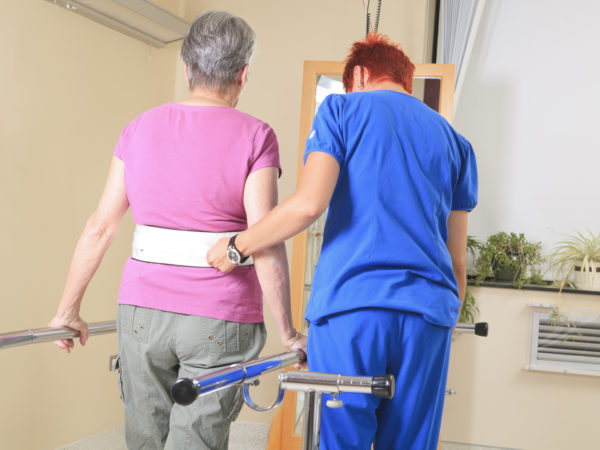Coping With a New Joint?
What advice can you offer for recovering from a hip and knee replacement?
Andrew Weil, M.D. | July 22, 2004

If you’re a candidate for hip or knee replacement or both, you probably have been told that you’ll face a six- to eight-week recovery period during which you’ll need physical and occupational therapy to learn how to sit, stand, walk, dress and protect yourself from injury. You will be expected to start to move – with assistance – immediately after either type of surgery. The best advice I can give you is to be conscientious about doing all the prescribed exercises – this will speed your recovery and enhance your mobility.
You will also need help once you get home. If no one is available to be with you during your recovery, your physician may suggest spending some time in a rehabilitation center until you are able to take care of yourself. If you are going straight home from the hospital, follow the tips below from the American Academy of Orthopaedic Surgeons to make you and your environment safer and more comfortable:
- Arrange items that you use regularly at arm level so that you don’t have to reach or bend for them. Keep all your medications and instructions from your physician or physical therapist within easy reach.
- Rearrange furniture so that you can move about easily with a walker or crutches; remove any rugs that you could slip on; make sure that electrical cords are secured out of your path around the house.
- Install a shower chair, gripping bar and raised toilet.
- Get a chair that is firm and has a higher than average seat.
By the time you get home, you should be eating a normal diet although your physician may recommend temporarily taking supplements of iron (if you’re anemic from blood loss) or vitamin C. If you are put on a blood-thinning drug like coumadin, you might be told to avoid foods high in vitamin K, which reverses the effects of some blood thinners and might promote clotting. These include broccoli, cauliflower, Brussels sprouts, liver, green beans, garbanzo beans, lentils, soybeans, soybean oil, spinach, kale, lettuce, turnip greens, cabbage, and onions. That does not mean avoiding vegetables. They are good for you. Just don’t eat pounds of Brussels sprouts a day.
There are a few supplements that can help stimulate healing and reduce the pain, swelling and bruising that follow surgery. Take 200-400 mg of bromelain three times a day on an empty stomach along with three to five 30c tablets of homeopathic arnica every two to four hours as needed.
In order to avoid stressing your artificial joint, it is important to watch your weight. This means losing weight if necessary or being careful not to gain if your weight is normal. Your recuperation period is a good time to begin a weight control program: your limited mobility will probably make it difficult – if not impossible – to raid the refrigerator or shop for unhealthy, high-calorie foods. Plan healthy balanced meals and ask those caring for you to help you switch to a diet that will promote weight loss.
I would also recommend mind/body techniques like hypnosis, visualization, and progressive muscle relaxation to help prepare for surgery, and to generate healing imagery during the recovery process.
If you follow the orders of your doctor and therapist, you should have a speedy and safe recovery.
Andrew Weil, M.D.











